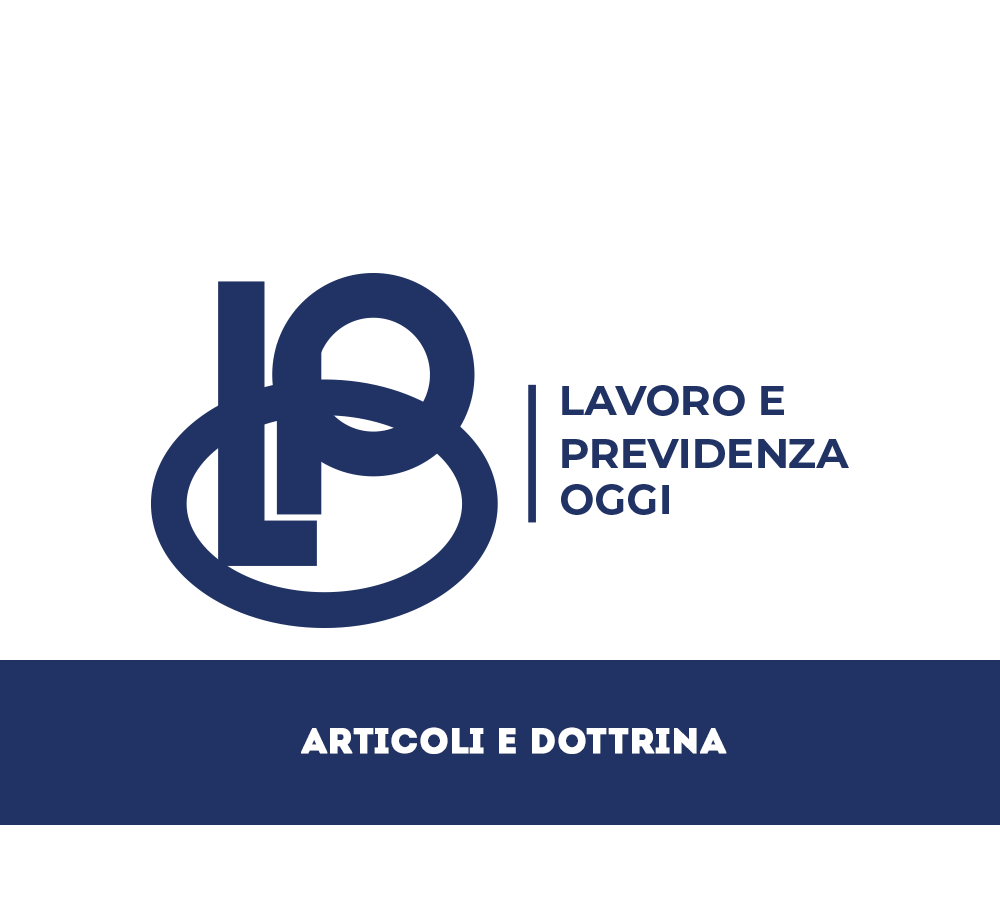Lavoro agile emergenziale: casi e questioni

di M. Lavinia Buconi
Abstract
Il contributo esamina le principali questioni relative al lavoro agile emergenziale, nato con le finalità di proteggere i lavoratori dal contagio da Covid-19 attraverso l’isolamento e la riduzione del rischio, di permettere ai lavoratori con figli di assisterli nella didattica a distanza durante la chiusura delle scuole e di evitare o limitare le chiusure delle attività grazie alle prestazioni da remoto.
Nell’ambito di procedimenti d’urgenza, nonché di procedimenti proposti ai sensi dell’art. 1, co. 48, L. n. 92/2012 e dell’art. 28 L. n. 300/70, i giudici di merito hanno in particolare affrontato le questioni relative alla sussistenza del diritto di lavoratori pubblici e privati ad essere adibiti allo svolgimento della prestazione in regime di lavoro agile emergenziale (anche previa verifica di un titolo di priorità), alla percentuale dell’orario lavorativo da svolgere in smart working, al termine finale del periodo di adibizione al lavoro agile emergenziale e al diritto a fruire dei buoni pasto durante l’adibizione a lavoro agile emergenziale, nonché ai diritti sindacali di contrattazione, concertazione e consultazione in ordine al ripristino dell’attività lavorativa in presenza.
A fronte del massiccio ricorso al lavoro agile emergenziale e della complessità della relativa disciplina, hanno dovuto affrontare prevalentemente in via d’urgenza numerose questioni interpretative che hanno spesso impattato sui principali istituti giuslavoristici: trasferimenti, mansioni, ferie, orario di lavoro, idoneità al lavoro e licenziamento disciplinare.
Il D.P.C.M. 23 settembre 2021 ha previsto che dal 15 ottobre 2021 la modalità ordinaria di svolgimento della prestazione lavorativa nelle pubbliche amministrazioni è soltanto quella svolta in presenza; si torna dunque al regime di cui alla L. n.81/2017; le riflessioni svolte nel periodo emergenziale possono dunque costituire un valido punto di partenza per il più efficace utilizzo dell’istituto a regime.
Abstract
This contribution examines the main issues relating to emergency smart working, created with the aim of protecting workers from Covid-19 contagion through isolation and risk reduction, to allow workers with children to assist them in distance learning during the closure of schools and to avoid or limit the closures of activities thanks to remote services.
In the context of urgent proceedings, as well as proceedings proposed pursuant to art. 1, co. 48, L. n. 92/2012 and art. 28 L. n. 300/70, the judges of merit have in particular dealt with the issues relating to the existence of the right of public and private workers to be employed in the performance of the emergency agile work regime (also after verification of a priority qualification), to the percentage of the working hours to be carried out in smart working, at the final end of the period of use for emergency agile work and the right to use meal vouchers during the adaptation to emergency agile work, as well as trade union rights to bargain, consult and consult in order the resumption of work in the presence.
Faced with the massive recourse to emergency agile work and the complexity of the related discipline, numerous interpretative issues that have often impacted on the main labor law institutes have had to deal mainly in an urgent manner: transfers, duties, holidays, working hours, suitability to work and disciplinary dismissal.
The D.P.C.M. 23 September 2021 established that from 15 October 2021 the ordinary way of carrying out work in public administrations is only that carried out in presence; we therefore return to the regime referred to in Law 81/2017; the reflections carried out in the emergency period can therefore constitute a valid starting point for the most effective use of the institution when fully operational.

